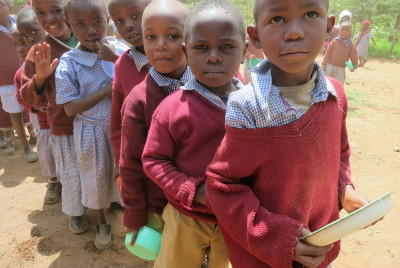- Blow to 4.5 million learners as the government plans to scrap off the school feeding program in the 2024/2025financial year budget estimates
The National Treasury intends to scrap off the school feeding program in the 2024/2025 financial year after a good run of 44 years since 1980, a decision that will affect up to 4.5 million learners in the country.
It is a proposal that comes despite the Kenya Kwanza government promising to enhance the program to attract more learners.
“What I would want to understand is what rationale was used to propose the scrapping of this programme? I thought it was a policy of this government to even add more money into this?” said Tinderet MP, Julius Melly, in the Education committee.
The Ministry of Education sought an additional Ksh 1 billion supplement to the already allocated Ksh 4.9 billion, a request that was blown off.
This has caused an uproar among members of the National Assembly as the PS Education Bellio Kipsang champions for disapproval of the proposal.
Read More
“The biggest challenge we are facing is that the whole budget has been removed. Those of us who take three meals a day might not know the feeling of what happens when a child does not have a meal in some certain parts of this country, that is why I wanted my colleagues from Treasury who think this programme is not important to be here,” PS Bellio Kipsang said.
According to the Ministry, the biggest casualty are the junior secondary school that has reported an increased enrolment to 3,289 learners requiring Ksh.46.1 billion to fully sponsor the students.
Lack of food is among the contributors of low enrolment in school as both parents and learners are encouraged by the provision.
The school feeding program dates back to late 70s with the late president Moi’s government who launched the famous ‘Nyayo milk’.
In 1980, the program was initiated by the then government with the aim of providing mid-day meals to children in primary schools especially those who came from arid, semi-aid and urban slums prone to drought and food insecurity.
The World Health Organization (WHO) also advocates for healthy, sustainable diets to address malnutrition, which is a crisis in developing countries like Kenya.
National policies including the Kenyan Constitution 2010, vision 2030 and the Food and National security policy emphasizes on the importance of nutrition for all.
An example of such initiatives is the ‘Dishi na county’ initiative, implemented by the Nairobi city county government targeting public primary schools and early childhood education centres.
Over 200,000 learners set to benefit from it providing a nutritious and balanced diet.










